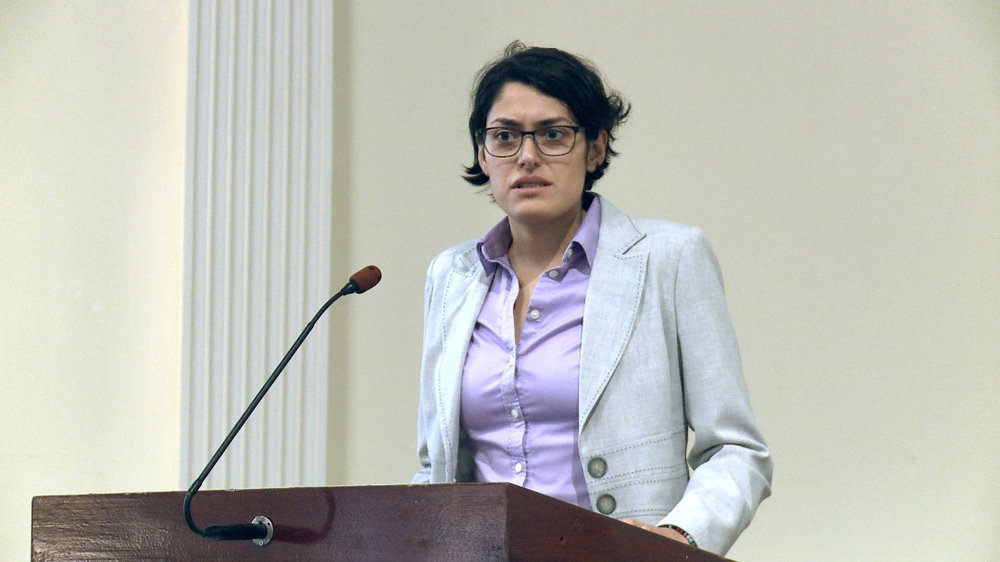Europeans want to preserve JCPOA: Tabatabai

Ariane Tabatabai, director of curriculum and an assistant teaching professor at the Georgetown University Edmund A. Walsh School of Foreign Service says “the most important driver behind the Trump administration's decision to withdraw from the JCPOA is domestic politics.”
Fellow at the Harvard Kennedy School’s Belfer Center for Science and International Affairs also adds that “President Trump strives to undo President Obama's legacy.”
“I do believe that the Europeans want to preserve the JCPOA and are trying their best overcome the hurdles created by the U.S. exit from the process,” Tabatabai says the Tehran Times.
Following is the full text of the interview:
Q: The US violated the JCPOA. What are the reasons behind this unilateral revocation?
A: The most important driver behind the Trump administration's decision to withdraw from the JCPOA is domestic politics. First, President Trump strives to undo President Obama's legacy. And the JCPOA was one of Obama's chief foreign policy achievement and legacy. Second, one of Trump's only concrete foreign policy promises on the campaign trail was to undo the JCPOA. So, pulling America out of the JCPOA is essentially a campaign promise being fulfilled to his base.
Q: In regard to Trump's violation of the Iran deal, what are the obligations and responsibilities of the deal's other signatories?
A: If all other parties decide to proceed without the United States, they will all have to uphold their respective ends of the bargain. But it'll be incredibly difficult for the Europeans, in particular, to provide Iran with what it wants out of the JCPOA without some U.S. buy in. The Europeans, both in Brussels and in other capitals, are trying to find solutions to this very problem as we speak.
Q: In a tactful reaction to Trump's Betrayal of Nuclear Deal, Iran said the survival of JCPOA highly depends on firm European guarantees. Since the EU's leverage is not strong enough to bring the US back to reason, shall Iran count on their guarantees?
A: I do believe that the Europeans want to preserve the JCPOA and are trying their best overcome the hurdles created by the U.S. exit from the process. That said, there's no doubt that America's economic power, combined with Europe's own interests in other areas and its history of taking a backseat to the United States, make it all very challenging. It's too early to tell if the EU proposed measures will be enough to satisfy Iran.
Q: Will EU dare to invest or have economic engagement with Iran in a situation where the US nuclear related sanctions are back again and the foreign companies face US penalties?
A: The EU is doing what it can at the EU level to minimize the damage of new U.S. sanctions. That said, the EU can't force companies invest in Iran. It can only help them navigate the minefield of doing business with Iran in the current climate. Iran can tackle the challenges that impact its economy and deter businesses to encourage companies to invest in Iran.
Q: Returning which kind of the sanctions are red line for Iran that will danger its national interest?
A: To my knowledge, there's no clear indication that specific kinds of sanctions are a red line. What needs to meet the Iranian expectation is the total "package" offered by the Europeans, in particular, to keep Iran on board.
Leave a Comment